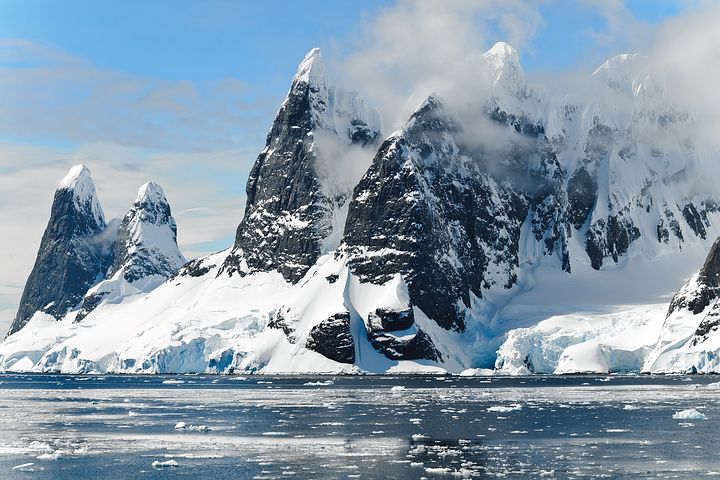
Of all the troubles plaguing our world, global warming is arguably the one that will have the biggest long-term impact on the future of our planet. A brief look at some statistics will prove right the experts that have been warning us about the impact our consumerist, wasteful attitude to resources is having on the environment.
Since 2001, 17 of the 18 warmest years on record have been registered. Carbon Dioxide levels are at their highest point in 650,000 years, at a quite astonishing 409 parts per million. The global sea level is growing at a rate of 3.2mm a year and has risen a terrifying 7” (178mm) in the last century.
With a growing number of natural disasters and ever-rising temperatures maybe, just maybe, the time has come for the world to have a look at the devastation we are causing and start approaching consumerism and modernity with a softer, more conscientious approach. The dramatic growth in demand for meat, for means of transport and for corporate growth has been synonymous with greed, materialism and waste. Until now.
Generation Woke
The only positive to be drawn from the frightening reality of climate change is that it has aroused the necessary determination and focus around the world to finally kickstart a change. Traditionally, corporations have often presented business aspirations as being in juxtaposition and in stark contrast to an ecologically friendly development and global progression. This flawed assertion of capitalism is being disproven and is most firmly backed up by numbers as we (fingers crossed) enter a new age of global business.
This article is going to focus on Latin America as a case study for the endless potential that sustainable innovation has in improving the quality of life and economic security in the region, and the notable opportunities that there are for foreign investment in the region. The article will aim to discredit the outdated assertion that green investment is merely a humanitarian aid or a charitable contribution, and in fact is the future of global economics.
The results from the study Better Business, Better World LAC suggest that by 2030, there is an astonishing USD$1 trillion of potential profit and opportunity to be tapped into across the Latin American and Caribbean region from purely green, sustainable and innovative business models and investment. The study points to an eye-watering USD$321 billion available in the energy and minerals sector, with USD$328 billion at the disposal of any entrepreneurs that can effectively clean up the highly polluting food and agricultural sector. This estimate comes with the projection of over 20 million jobs across the LAC region. The global worth of green investment has been placed at USD$12 trillion, creating a total of 380 million jobs.
In addition to this, there is a growing and increasingly optimistic approach to innovation sweeping the LAC region right now, with sustainability starting to penetrate the heart of FDI and development more and more. The startup boom that has characterised Latin America’s recent economic resurgence includes a very significant subcategory of green concepts that are combining a variety of approaches to entrepreneurship and innovation with the goal of reducing their impact on the globe. The next part of this article will focus on three communities of the economy that are making a statement regarding clean commercial activity: companies redefining the energy production sector, companies using a circular economy and Green Investment Banks (GIBs).
Clean Energy Production
Finding a clean solution to energy production has been a priority for decades now. One option that is being pursued by many leaders in the green development sector is the possibility of creating localised, community-focused energy production methods.
ENEL Green Power, the innovation hub of ENEL group, are a team that are conceptualising inventive and novel approaches to renewable energy in 21 jurisdictions worldwide, including 10 Latin American countries, and can be considered one of the worlds principal clean energy producers, with a total production of 82TWh. What is impressive and heartwarming about this company is the infallible and unwavering commitment to social justice and empowerment. The Vientos delAltiplano wind farm in Zacatecas, Mexico, has an installed capacity of 280GWh. It is a region with very favourable conditions for wind production, but for the local communities presents many obstacles due to the dry nature of the land which traditionally yields very few crops. ENEL and the Chapingo Autonomous University collaborated in a partnership with local farmers to utilise energy from the wind farm in order to modernise and refine agricultural techniques. They assisted 40 locals in learning how to plant crops which will adapt to the local conditions and provided the technology to maximise efficiency for the community.
Industry experts EWT Direct Wind are another example of a company that has created an inventive approach to energy production, by providing wind turbines that function and provide for small communities. They have described their idea of ‘Distributed Systems’ as a solution that “reduces costs of local generation, is quicker to deploy and offers greater security and flexibility to the local energy system”. The Dutch company started their work in their native Holland, before expanding their operations all over the world, from Great Britain to Turkey to Mexico. They could provide a creative and practical solution to the infrastructural issues that have held back Mexico’s energy sector, with current generation grids often excluding rural and isolated communities. A distributed energy system like EWT will solve the issue of exclusion that many smaller towns and villages suffer from by bringing the solution directly to their communities with a local small-scale wind energy production plant, whilst also helping the country to achieve the ambitious goal of using wind to produce 16% of national energy by 2029.
A Not-So-Vicious Circle
Another shift in the Latin Market that is making a significant difference in improving the regions carbon footprint is the emergence of companies that employ a fully integrated Circular Economy. The traditional production timeline of a product or good is described as a take-make-dispose process. To provide an example, let’s consider the production of an everyday object such as a pencil sharpener. This 3-point description refers to the taking of raw materialssuch as plastic or brass in order to make the product. This pencil sharpener will then be used until the blade goes blunt and it is disposed of. An innovative company that uses a circular economy will break this chain, and provide an opportunity for users of their product/service to recycle parts of the product, reducing costs and waste for both the producer and the customer. To wrap up our pencil sharpener example, London based startup Brahman Design have solved the waste issue of this common stationery item by innovating a new, one-of-a-kind product that provides the opportunity to replace the blade, rather than the entire product.
This simple step of removing the disposal step of the process and conceptualizing a creative solution to waste issues can be scaled up to humungous scales and provide cutting-edge answers to much bigger and concerning problems than pencil sharpeners! Circularity has been employed by a number of startups in Latin America to tremendous effect in an effort to more efficiently and cleanly deal with waste and rubbish disposal. Brazilian Based Startup Recicladora Urbana is a classic example of a circular economy. They provide optimised support to companies that are looking to more effectively manage waste from components in the telecommunications and IT sector. They specialise in helping streamline the waste management for clients and are experts in remanufacturing and recycling electronic products that would otherwise be dumped and destroyed. They have created a line of fully reconditioned computers and notebooks, created from entirely recycled parts. The company managed to find end-of-life solutions for over 400 tons of equipment in 2015. The relative simplicity of their company is a testament to the potential of a circular production line.
Green-cubators
The concept of a startup incubator is by no means novel in Latin America. It is the à la mode strategy of choice by a number of governments who have pledged financial support and assistance for startups that look to enter the domestic market of the respective country. The most famous example is perhaps Start-Up Chile. Other examples include the marvellously named Buenos Aires based Argentine equivalent, IncuBAte. The work of these government-funded groups is well known and the results are largely very positive.
Perhaps slightly more under the radar is the work of Green Investment Banks (GIBs). These are specialist financial institutions that receive their money through public contributions and provide support for climate-friendly green investment. Another interesting trait of many GIBs is the fact that they use their financial capital to ease the risks involved in investment for other investors, thus encouraging more participation and nourishing further innovation and development in their market. Interestingly, despite the success of global GIBs, such as GreenTech Malaysia, the only one based in an emerging market, the concept has yet to take off, despite the obvious opportunities, in Latin America. The feeling among experts such as Douglass Sims is that this could be a hugely successful and promising market entry opportunity in Latin America and maybe a space to watch in the near future.
What is the Future?
This article has strived to make clear that damage-free and clean industry can and does exist and the mutual interests of all parties involved can be satisfied. The corporate greed that has dominated the international industry for decades is no longer tolerable, and a supposed lack of profitability is not an excuse. The recognition of the importance of green business in Latin America stems back to the 1950s and has been gaining traction ever since. The number of higher education programmes dedicated to the protection of our environment is growing at a startling rate ( eg. In Mexico there were 290 programmes in 1993 which by 2001 had grown to 1,399) and it is no coincidence. The needs of the world are changing and are reacting to the horrific damage that climate change is causing. This article hoped to foster optimism and hope in a time where the rhetoric surrounding climate change is often dreary and bleak. People are making a difference and there is plenty plenty more that can be done to help save our planet. Remember, we only have one.
Author Bio: I am Toby Feldman and I work with the Marketing and Content Production team at Biz Latin Hub. We are the leading market-entry service provider in Latin America and have a presence in over 12 jurisdictions and specialise in company formation and legal and accounting services.





Leave a Comment